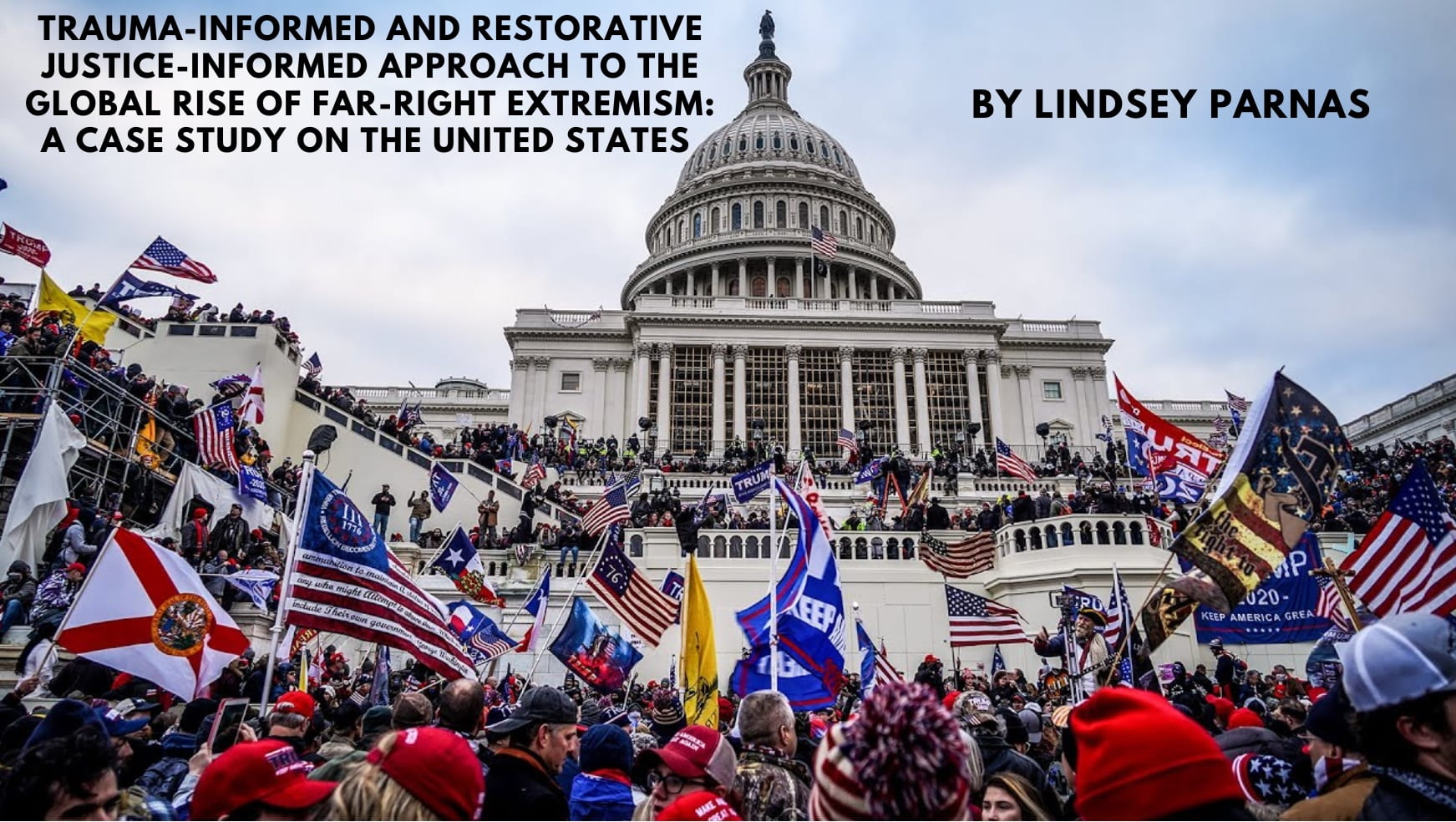
Issue LVI- Number 1
Lindsey Parnas
Abstract: Americans and citizens of ineffective countries have increasingly felt abandoned by their governments, turning to extremist groups for a sense of community, power, and dignity. Drawing from global deradicalization and reintegration case studies as well as restorative justice practices, this article will develop an in-depth case study examining the rise of Far-Right extremism in the United States and argue for the need for a trauma-informed and restorative-justice informed approach. This article argues that we should not assume that the United States is immune from the problems that have affected communities abroad and encourages a whole-of-society approach to (trauma-informed) deradicalization of American Far-Right extremists willing to achieve their goals through violence or non-democratic means. Additionally, this article recommends prioritizing a restorative/ rehabilitative approach instead of a punitive approach to extremists both in the United States and worldwide because imprisonment does not heal societies or deal with extremism’s root causes. A restorative justice approach through local reconciliation commissions can begin the process of national and individual healing. While this article focuses specifically on American Far-Right extremists, many of the strategies have been used for Far-Right extremists and white supremacists globally and can continue to apply to other global contexts.
Key Terms: Far-Right extremism, deradicalization, disengagement, rehabilitation, reintegration, trauma-informed care, reconciliation, restorative justice
About the Author: Lindsey Parnas (they/she) is currently candidate for the Master of Arts of Arab Studies (MAAS) and Diplomacy Studies certificate at the Georgetown University Walsh School of Foreign Service. They have extensive work experience in gender and social inclusion, peacebuilding, and countering violent extremism, and they currently work as a Domestic Radicalization Researcher at START, University of Maryland and a Social Inclusion Program Fellow at the Berkley Center for Religion, Peace, and World Affairs. She also holds a Bachelor of Arts (BA) from Sciences Po Paris in Political Science and Middle East Affairs and a BA from the University of California Berkeley in Global Studies, receiving summa cum laude at both schools.
Click here to go to previous article | Click here for full article | Click here for full Journal Issue | Click here to go to next article



You must be logged in to post a comment.